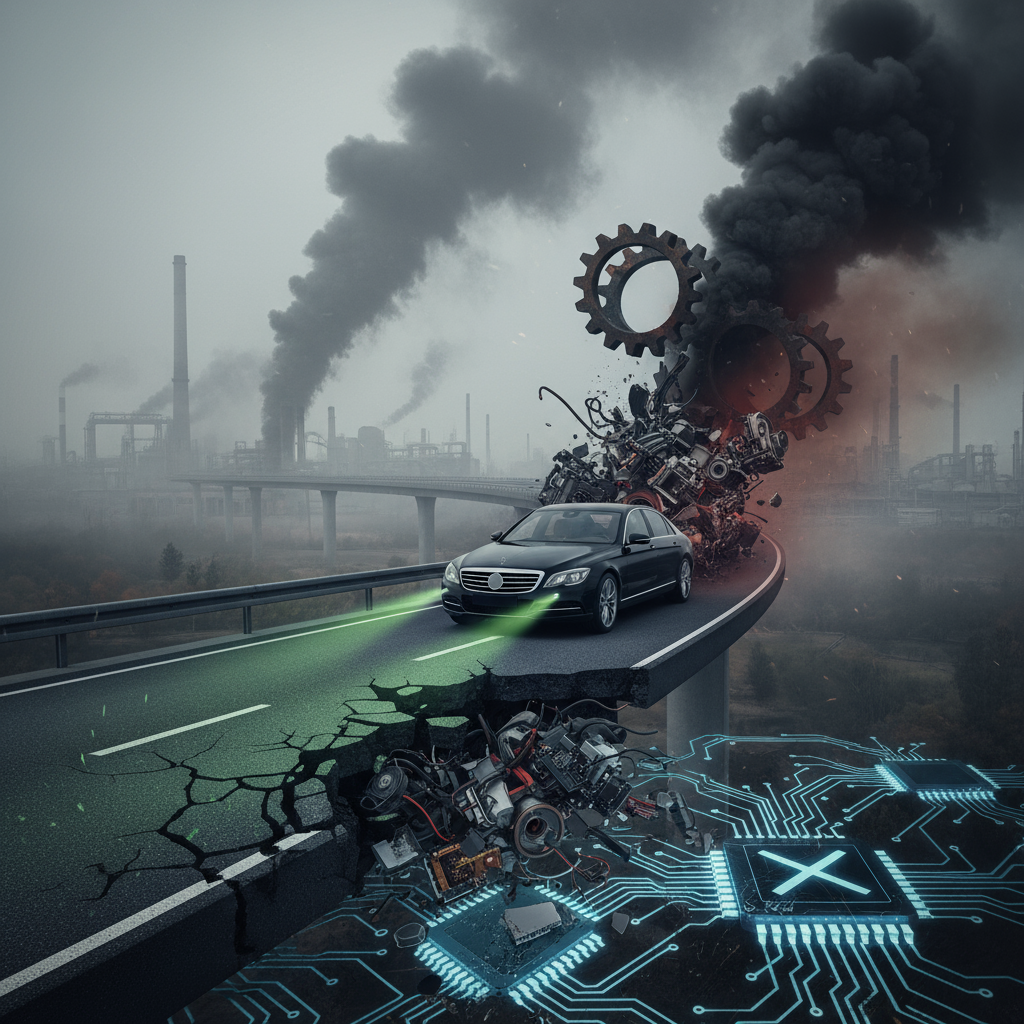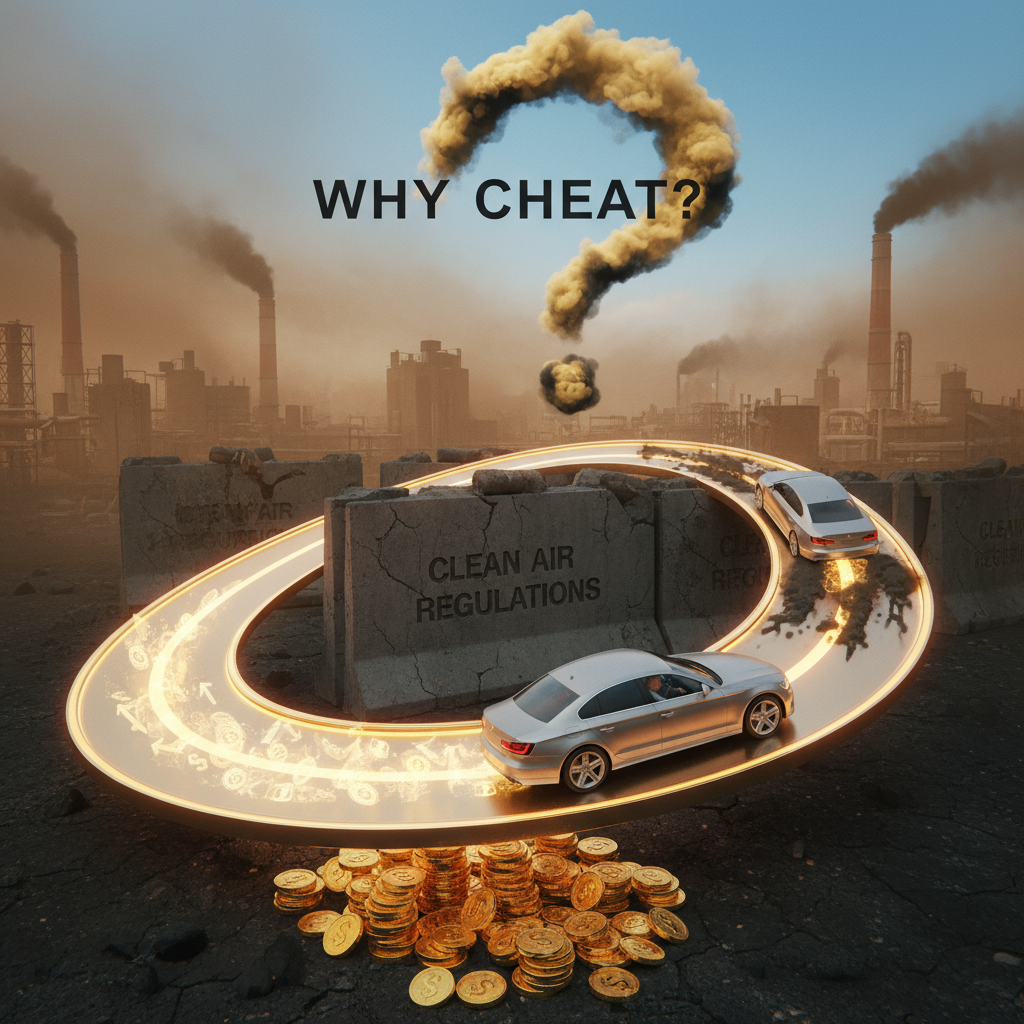The Deceptive Drive: When Carmakers Chose Deceit Over Compliance

Remember “Dieselgate”? The scandal that rocked the automotive industry, revealing a massive conspiracy where some of the world’s leading car manufacturers deliberately circumvented emissions regulations. Years later, the echoes of that deception continue to reverberate, with a recent trial reiterating the stark truth: carmakers, in a calculated move, chose to cheat the system to sell more vehicles rather than genuinely comply with environmental laws. This wasn’t an oversight or a mistake; it was a deliberate choice with far-reaching consequences for our environment, our health, and the public’s trust in a major industry.
The implications of this revelation are profound. It paints a picture of corporate greed and a systemic failure to prioritize ethical conduct over profit margins. As we delve deeper into the core of this issue, we’ll explore why this choice was made, the fallout, and what lessons still need to be learned from one of the automotive world’s most regrettable chapters.
The Allure of the Loophole: Why Cheat?

At the heart of the Dieselgate scandal was a fundamental trade-off: performance versus emissions. Meeting stringent emissions standards often means implementing technologies that can slightly reduce engine power or increase manufacturing costs. For carmakers, especially those with aggressively marketed “clean diesel” vehicles, this presented a dilemma.
The “clean diesel” narrative was particularly potent. It promised the fuel efficiency of diesel engines with the environmental benefits of lower emissions, a compelling combination for consumers. However, achieving this ideal without compromising on the robust feel and power that diesel enthusiasts craved was a monumental engineering challenge. Rather than invest heavily in legitimate, albeit more expensive, solutions, some manufacturers opted for a shortcut.
This shortcut came in the form of “defeat devices” – software designed to detect when a vehicle was undergoing emissions testing. During these tests, the cars would operate in a low-emissions mode, appearing compliant. But on the open road, under normal driving conditions, these same vehicles would switch to a higher-emissions mode, delivering better performance and fuel economy at the cost of spewing out significantly more pollutants than legally allowed.
The Environmental and Health Toll of Deception
The consequences of this deliberate deception were not abstract. The excess emissions released by these rigged vehicles had a tangible and detrimental impact on air quality and public health. Nitrogen Oxides (NOx), the primary pollutant from diesel engines that these defeat devices sidestepped, are well-known contributors to respiratory diseases, smog, and acid rain.
Studies conducted in the wake of Dieselgate estimated that the excess emissions from these non-compliant vehicles contributed to thousands of premature deaths across Europe and the United States. This isn’t just about regulatory fines; it’s about a direct link between corporate malfeasance and human suffering. Imagine buying a car advertised as environmentally friendly, only to unwittingly contribute to the very pollution it claimed to combat. The betrayal of trust extended far beyond mere financial implications.
Beyond human health, the environmental impact was significant. The increased levels of NOx contributed to ground-level ozone formation, damaging crops and ecosystems. The narrative of “clean diesel” was not just a lie to consumers; it represented a setback for environmental protection efforts dedicated to improving air quality.
Rebuilding Trust: A Long and Winding Road
The Dieselgate scandal exposed a deep flaw in the industry’s ethical framework and regulatory oversight. The immediate fallout included massive fines for manufacturers, recalls of millions of vehicles, and numerous lawsuits. However, the damage to consumer confidence was arguably more profound and longer-lasting.
Since then, carmakers have been under intense scrutiny. There’s been a notable shift towards electrification, partly spurred by the desire to move beyond the internal combustion engine’s inherent emissions challenges and partly by changing consumer demands. Regulations have also become more sophisticated, aiming to prevent similar circumventions in the future.
However, the recent trial’s assertion serves as a potent reminder that simply implementing new technologies or stricter laws isn’t enough. A fundamental change in corporate culture, prioritizing environmental responsibility and ethical conduct over short-term profits, is crucial. The industry must consistently demonstrate a genuine commitment to compliance, not just when under the microscope, but as an integral part of their operational DNA.
Lessons Learned (or Still Learning?)
The Dieselgate saga offers several critical lessons. Firstly, it highlights the importance of robust and independent testing, moving beyond manufacturer-controlled laboratory conditions to real-world driving scenarios. Secondly, it underscores the need for severe penalties that genuinely deter corporate malfeasance, making the cost of cheating far higher than the potential profits.
Most importantly, it’s a stark reminder that consumers, regulators, and environmental advocates must remain vigilant. The default assumption that large corporations will always act in good faith is often misplaced when financial pressures are high. As technology continues to evolve, so too will the methods of potentially circumventing regulations. Continuous oversight, transparency, and a global commitment to accountability are essential to prevent similar betrayals of trust in the future.
The choice made by carmakers to cheat rather than comply was a dark stain on an industry that prides itself on innovation and reliability. Moving forward, the industry has an opportunity – and an obligation – to build a future where technological prowess is matched by an unwavering commitment to ethical practices and genuine environmental stewardship.

